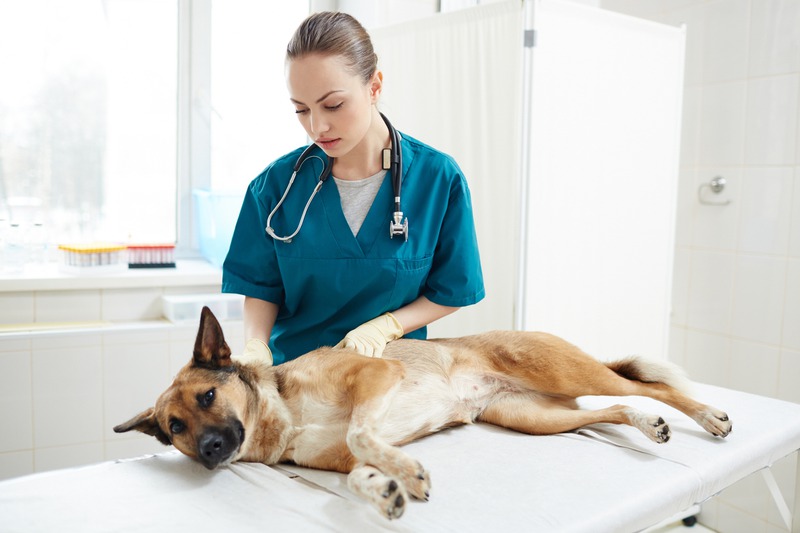When you welcome a pet into your home, you’re signing up for more than just cuddles and playtime—you’re committing to their health and well-being for the long haul. A significant part of that is ensuring they are up-to-date on their shots. But exactly how often should your furry friends receive these critical vaccinations?
Recommended Vaccination Schedules
The simple answer to the question is that it depends. Factors such as your pet’s age, medical history, environment, travel habits, and lifestyle will all influence the regularity of their shots. There’s a generally accepted schedule for pet vaccinations that serves as a starting point, but it’s always best to consult with your vet for advice tailored to your pet’s specific needs.
Core Vaccines for Dogs and Cats
Core vaccines are critical for all pets. For dogs, these generally include rabies, distemper, parvovirus, and adenovirus. Cats require shots for feline herpesvirus, feline calicivirus, feline panleukopenia, and rabies. Puppies and kittens typically receive a series of vaccinations every 3-4 weeks until they reach around 16 weeks of age. After this initial set, boosters are usually given at one year and then every three years following.
Non-Core Vaccines and Their Schedule
Beyond the core shots, our pets might need additional vaccines based on their risk of exposure to other diseases. For instance, dogs may be given vaccines for Bordetella (kennel cough), Lyme disease, and leptospirosis. Cats could receive shots for feline leukemia virus (FeLV) and feline immunodeficiency virus (FIV). These non-core vaccines are not required for all pets but are recommended based on lifestyle—like if your dog frequents dog parks or if your cat goes outdoors.
These non-core vaccines often have their schedules; some may require annual boosters, while others last longer.
Consider Your Pet’s Lifestyle
As our pets grow, their lifestyle can have a significant impact on the type of shots they need. For example, a pet surgeon in Berkeley, CA, might recommend specific vaccines if your pet is undergoing surgery or if they have medical conditions that affect their immune system. Outdoor pets might require different vaccinations compared to indoor pets, and frequent travelers might need additional shots to protect against regional diseases.
A Tailored Approach to Vaccination
Every pet is unique, and so is their health plan. You might have a schedule in mind, but your vet is the expert when it comes to personalized pet healthcare. They will assess your pet’s specific situation and suggest a vaccination schedule that suits their needs and keeps them protected against harmful diseases.
Staying Up-to-Date on Vaccinations
Keeping track of your pet’s vaccination schedule is essential. Here are some tips for making sure your furry companion stays up-to-date:
-
Keep a vaccination record: This will help you track which shots your pet has received and when they’re due for their next set.
-
Set reminders: Use your phone or calendar to set up alerts for upcoming veterinary appointments.
-
Discuss changes with your vet: If your pet’s lifestyle or health changes, their vaccination needs might change too. Always keep your vet in the loop to ensure your pet receives the appropriate care.
-
Follow local laws: In many places, certain vaccinations like rabies are legally required for pets. Make sure you’re aware of these rules to keep your pet compliant.
Preventive care is also a part of keeping your pet healthy. To avoid diseases that could harm your pet and others, pet vaccinations & parasite prevention should not be neglected. Vaccinations can shield them from serious diseases and parasites that can be not only harmful but also costly to treat.
Working with Your Local Vet
Finding a trusted veterinarian is invaluable when it comes to your pet’s health. A Berkeley veterinary hospital may offer a continuity of care that can be very beneficial. A vet who’s well-acquainted with your pet’s health history will be better equipped to suggest a vaccination plan that’s right on target.
Open communication with your veterinarian is crucial. Don’t hesitate to ask questions or express concerns. Discussing everything from your pet’s daily routine to their interaction with other animals can provide your vet with the information needed to protect your pet against illnesses effectively.
Remember, shots are only a part of your pet’s healthcare. Regular check-ups, good nutrition, exercise, and plenty of love are just as important to ensure your pet lives a long and healthy life.
Taking Responsibility for Your Pet’s Health
Ultimately, it boils down to being a responsible pet owner. Recognizing the significance of timely vaccinations and working alongside your vet will help your pet lead a vibrant, disease-free life. Each pet’s needs will differ, and with the right care and attention to their health schedule, you can provide them with the best defense against disease.
Final Thoughts
As we wrap up our discussion on pet vaccination schedules, we find that there isn’t a one-size-fits-all answer. Monitoring your pet’s health, maintaining open lines of communication with your vet, and being diligent about preventive care are the keys to staying on top of their medical needs. So, keep these guidelines in mind, consult with your vet, and ensure that your beloved pet stays healthy and happy through all stages of their life.

